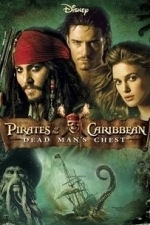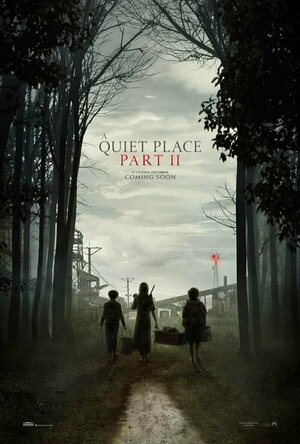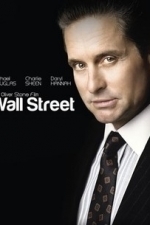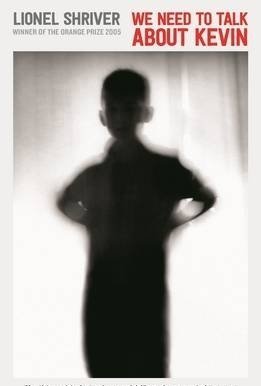Search
Search results
Connor Sheffield (293 KP) rated Pirates of the Caribbean: Dead Man's Chest (2006) in Movies
Jun 5, 2017
The creations of the pirate lore brought to life (3 more)
Original Cast return for the sequel
The addition of new incredible casting choices such as Bill Nighy
It maintains the franchises humour in new ways
Giving Pirate Lore a new image
Since I have reviewed the first, fourth and fifth films of this franchise, I thought it to be necessary for me to review the second and third installments as well.
Disney created something truly entertaining when they brought to us 'The Pirates of the Caribbean: The Curse of the Black Pearl', and I know that i personally could not wait to see what journeys these characters would take us on. Jack Sparrow should probably be, and probably is, the highlight of all the films, because let's face it, Johnny Depp is ridiculously talented and this role helps us see him as something other than a Tim Burton creation. (Not saying I dislike Tim Burton or Johnny's roles in his films, but he is obviously in a lot of Tim Burton films, and he seems very typecasted in my opinion.)
But the later installments brought us talent that drives our attention away from the drunken idiot pirate captain, and draws us in by bringing to life the one name that all pirates fear; Davey Jones!
Davey Jones, to my knowledge, was never really given a true figure in the minds of pirates. He was always just a name to be feared, more so for the fact that the famous Davey Jones' Locker represented the bottom of the sea, and is used as a euphemism for drowning. When ships were wrecked in battle, or a sailor could not be retrieved after being thrown overboard, resulting in drowning, they would say that these sailors were now in Davey Jones' Locker. However, one thing that crossed my mind when I heard that they were bringing Davey Jones is as a villain (of sorts) to the film, was the bewilderment of who might play such a devilish character. Since there was never a figure before now, anyone could be cast. So the choices were almost endless. When the news came that Bill Nighy would be portraying him, I thought back to his role of Victor in the Underworld franchise, and I couldn't have chosen a better actor myself if I'm honest. His voice is different to many others and has a certain threatening spark to it, but one which didn't have to shout or change fully in tone to express anger or disgust. His voice, just is what it is and it's one that sticks in your head, and one you'll not forget anytime soon.
Two other famous lore based aspects, brought to life in this film are the Kraken, and of course the thing that the film is named after, the Dead Man's Chest. The Kraken would have been easier to come up with, because everyone knows the tale of the fearsome Kraken, the giant squid that can drag and entire ship down in one and make many a fierce pirate cower at the warning sign, known as the black spot, most often told to be placed upon the hand of the one it hunts.
However, I was really intrigued at the creators take on the famous Dead Man's Chest, and before I continue, here's a fun fact that'll give you a clue as to why it intrigues me so.
Fun Fact: Dead Man's Chest is actually an island called Dead Chest Island. The reason it is called Dead Chest Island, is because it is uninhabited, has no fresh water or trees and only sparse vegetation. However it is not entirely certain if this is the same island that the original Pirates of the golden age spoke of, but since there is no other island with a name that even closely resembles Dead Man's Chest, then this would seem to be the legendary island where it was told that Blackbeard used as punishment. Leaving his men stranded on the island with nothing but a cutlass and a bottle of rum each. When he returned after a month, there would be less men alive on the island than when he left. This inspired Robert Louis Stevenson's fictional sea shanty "15 Men on the dead man's chest, yo ho ho and a bottle of rum..".
So, the aspect that intrigues me is making this legend, and actual chest and connecting it to Davey Jones himself. In the film the chest contains the still beating heart of Davey Jones, and whoever pierced the heart becomes the next Captain of the Flying Dutchman, Davey Jone's famous ship. The look of Davey Jones himself is incredible, and the choice of giving him a squid face really adds to the fantasy of these films, and actually makes him terrifying, though not as much so if you were to read this. "Squid for a head...sounds silly" some people have said, yet when I show them a picture, they respond with something like "That's actually terrifying but awesome"
Overall, this installment has great casting choices and great visual effects, as well as an entertaining take on Pirate lore and as always, it is brilliantly funny.
Disney created something truly entertaining when they brought to us 'The Pirates of the Caribbean: The Curse of the Black Pearl', and I know that i personally could not wait to see what journeys these characters would take us on. Jack Sparrow should probably be, and probably is, the highlight of all the films, because let's face it, Johnny Depp is ridiculously talented and this role helps us see him as something other than a Tim Burton creation. (Not saying I dislike Tim Burton or Johnny's roles in his films, but he is obviously in a lot of Tim Burton films, and he seems very typecasted in my opinion.)
But the later installments brought us talent that drives our attention away from the drunken idiot pirate captain, and draws us in by bringing to life the one name that all pirates fear; Davey Jones!
Davey Jones, to my knowledge, was never really given a true figure in the minds of pirates. He was always just a name to be feared, more so for the fact that the famous Davey Jones' Locker represented the bottom of the sea, and is used as a euphemism for drowning. When ships were wrecked in battle, or a sailor could not be retrieved after being thrown overboard, resulting in drowning, they would say that these sailors were now in Davey Jones' Locker. However, one thing that crossed my mind when I heard that they were bringing Davey Jones is as a villain (of sorts) to the film, was the bewilderment of who might play such a devilish character. Since there was never a figure before now, anyone could be cast. So the choices were almost endless. When the news came that Bill Nighy would be portraying him, I thought back to his role of Victor in the Underworld franchise, and I couldn't have chosen a better actor myself if I'm honest. His voice is different to many others and has a certain threatening spark to it, but one which didn't have to shout or change fully in tone to express anger or disgust. His voice, just is what it is and it's one that sticks in your head, and one you'll not forget anytime soon.
Two other famous lore based aspects, brought to life in this film are the Kraken, and of course the thing that the film is named after, the Dead Man's Chest. The Kraken would have been easier to come up with, because everyone knows the tale of the fearsome Kraken, the giant squid that can drag and entire ship down in one and make many a fierce pirate cower at the warning sign, known as the black spot, most often told to be placed upon the hand of the one it hunts.
However, I was really intrigued at the creators take on the famous Dead Man's Chest, and before I continue, here's a fun fact that'll give you a clue as to why it intrigues me so.
Fun Fact: Dead Man's Chest is actually an island called Dead Chest Island. The reason it is called Dead Chest Island, is because it is uninhabited, has no fresh water or trees and only sparse vegetation. However it is not entirely certain if this is the same island that the original Pirates of the golden age spoke of, but since there is no other island with a name that even closely resembles Dead Man's Chest, then this would seem to be the legendary island where it was told that Blackbeard used as punishment. Leaving his men stranded on the island with nothing but a cutlass and a bottle of rum each. When he returned after a month, there would be less men alive on the island than when he left. This inspired Robert Louis Stevenson's fictional sea shanty "15 Men on the dead man's chest, yo ho ho and a bottle of rum..".
So, the aspect that intrigues me is making this legend, and actual chest and connecting it to Davey Jones himself. In the film the chest contains the still beating heart of Davey Jones, and whoever pierced the heart becomes the next Captain of the Flying Dutchman, Davey Jone's famous ship. The look of Davey Jones himself is incredible, and the choice of giving him a squid face really adds to the fantasy of these films, and actually makes him terrifying, though not as much so if you were to read this. "Squid for a head...sounds silly" some people have said, yet when I show them a picture, they respond with something like "That's actually terrifying but awesome"
Overall, this installment has great casting choices and great visual effects, as well as an entertaining take on Pirate lore and as always, it is brilliantly funny.
Sophia (Bookwyrming Thoughts) (530 KP) rated Titans in Books
Jan 23, 2020
<b><i>I received this book for free from Publisher in exchange for an honest review. This does not affect my opinion of the book or the content of my review.</i></b>
<i>Titans</i> is amazing, I adored the book and everything that came with it, and...
I want a Titan of my own as well.... Then again, I don't have horse riding experience, so I'll probably fall straight onto the ground face first. I'll stick with those wooden sticks that only have a horse head.
Here's what I adored and loved about Victoria Scott's latest novel (this is my first time reading her works....):
<ul>
<li>Mechanical horses, and it's not just a mechanical horse for experimental purposes. The mechanical horses, known as Titans in the book are horses used for racing. They not only resemble real horses, but they have emotions as well, and that's a little scary. The Kentucky Derby just got a new twist.</li>
<li>Victoria Scott almost always has a dash of humor in her characters' dialogue. I think this takes talent.</li>
<li>I adored each and every one of the major characters in the story. And if I didn't like them at first, I loved them by the end. That says something.</li>
</ul>
We have Astrid, a girl living an extremely rough life with everything on the line and sometimes scavenging to make a living. Being able to race in the Titan Derby allows her the chance to turn her rough life around, and she is determined to do what it takes within honorable boundaries. She also has a talent with math and can probably Calculus better than I ever did.
Then there's Magnolia, Astrid's best friend since childhood with the same amount of problems as Astrid if not more. But despite all of that, there is a strong bond of friendship between the two girls and Magnolia is there for Astrid every step of the way throughout the race, encouraging and supporting her. She is also hilarious and basically makes everything seem much better than they really are.
Victoria also introduces us to Rags, one of the key players who started the whole Titans spiel for Astrid (okay, he also started the whole Titans spiel in the first place) and allowing her the opportunity to race in the derby. He's a grumpy old man who comes across as overly crabby at first, but is secretly warm, fuzzy, and grandpa-ish.
Another key player to the whole Titans spiel is Barney, and he is definitely not the purple dinosaur from childhood. Although to be honest... he certainly reminds me of Childhood Barney in a weird way.
And later completing the ensemble, Victoria eventually introduces us to Lottie, a wealthy lady who has a history with Rags and gives off an "I seem intimidating because of my status, but I'm not <em>that</em> intimidating" vibe. She is also one of the few people who has hopes for Astrid early in the races and offers to be Astrid's sponsor, along with teaching her (and Magnolia) proper etiquette among the upper classes. Lottie is almost a surrogate mother outside of Astrid's home.
But even though they are all different from each other and normally wouldn't be caught dead together, the five of them click well throughout the duration of the race, forming a lasting friendship. The combination of friendship with the aspect of mechanical horses put together makes <i>Titans</i> a fantastic read for all ages.
<a href="https://bookwyrmingthoughts.com/arc-review-titans-by-victoria-scott/"; target="_blank">This review was originally posted on Bookwyrming Thoughts</a>
<i>Titans</i> is amazing, I adored the book and everything that came with it, and...
I want a Titan of my own as well.... Then again, I don't have horse riding experience, so I'll probably fall straight onto the ground face first. I'll stick with those wooden sticks that only have a horse head.
Here's what I adored and loved about Victoria Scott's latest novel (this is my first time reading her works....):
<ul>
<li>Mechanical horses, and it's not just a mechanical horse for experimental purposes. The mechanical horses, known as Titans in the book are horses used for racing. They not only resemble real horses, but they have emotions as well, and that's a little scary. The Kentucky Derby just got a new twist.</li>
<li>Victoria Scott almost always has a dash of humor in her characters' dialogue. I think this takes talent.</li>
<li>I adored each and every one of the major characters in the story. And if I didn't like them at first, I loved them by the end. That says something.</li>
</ul>
We have Astrid, a girl living an extremely rough life with everything on the line and sometimes scavenging to make a living. Being able to race in the Titan Derby allows her the chance to turn her rough life around, and she is determined to do what it takes within honorable boundaries. She also has a talent with math and can probably Calculus better than I ever did.
Then there's Magnolia, Astrid's best friend since childhood with the same amount of problems as Astrid if not more. But despite all of that, there is a strong bond of friendship between the two girls and Magnolia is there for Astrid every step of the way throughout the race, encouraging and supporting her. She is also hilarious and basically makes everything seem much better than they really are.
Victoria also introduces us to Rags, one of the key players who started the whole Titans spiel for Astrid (okay, he also started the whole Titans spiel in the first place) and allowing her the opportunity to race in the derby. He's a grumpy old man who comes across as overly crabby at first, but is secretly warm, fuzzy, and grandpa-ish.
Another key player to the whole Titans spiel is Barney, and he is definitely not the purple dinosaur from childhood. Although to be honest... he certainly reminds me of Childhood Barney in a weird way.
And later completing the ensemble, Victoria eventually introduces us to Lottie, a wealthy lady who has a history with Rags and gives off an "I seem intimidating because of my status, but I'm not <em>that</em> intimidating" vibe. She is also one of the few people who has hopes for Astrid early in the races and offers to be Astrid's sponsor, along with teaching her (and Magnolia) proper etiquette among the upper classes. Lottie is almost a surrogate mother outside of Astrid's home.
But even though they are all different from each other and normally wouldn't be caught dead together, the five of them click well throughout the duration of the race, forming a lasting friendship. The combination of friendship with the aspect of mechanical horses put together makes <i>Titans</i> a fantastic read for all ages.
<a href="https://bookwyrmingthoughts.com/arc-review-titans-by-victoria-scott/"; target="_blank">This review was originally posted on Bookwyrming Thoughts</a>
Bob Mann (459 KP) rated A Quiet Place: Part II (2021) in Movies
May 29, 2021
Continuation of the original story, with thrills and suspense throughout (1 more)
Great cast - Millicent Simmonds and Noah Jupe are particularly good
Plot Summary:
In a pre-title sequence, we return to “Day 1” of the events of the first movie to see how life in the Abbott’s home town changed forever when chaos reigned down from the skies.
Rolling forward 473 days later, the plot picks up on the life of Evelyn (Emily Blunt), Regan (Millicent Simmons) and Marcus (Noah Jupe), following the dramatic events of “A Quiet Place” and the death of husband/father Lee (John Kravinski).
The three, together with Evelyn’s newborn, set off on a perilous journey to find help.
Positives:
- Sequels often try to over-reach, lobbing-in over-the-top action and forgetting why the audience so loved the original hit. This sequel doesn't fall into that trap, continuing the story in a seamless way. We very quickly get reinvested in the character's dire situation (as their situation suddenly gets even more dire!).
- The pre-title sequence is perfectly paced and utterly thrilling. It's the sequence that most grabbed my attention so many months (years?!) ago when - pre-Covid - I first saw the trailer attached below. That bus!!
- The ensemble cast works well together. Cillian Murphy is a fine actor, filling the Krasinski-shaped hole. And Emily Blunt is as kick-ass and wonderful as always. But special 'attaboys' need to go to the two youngsters, Millicent Simmonds and Noah Jupe. They were impressive in the first movie but here have to carry even more of the dramatic action and are just brilliant.
- Technically, the film has Oscar-worthy strengths.
-- The editing here is first rate: many of the jump scares are well-signposted, but they still work thanks to the timing of the cuts.
-- The sound design is (as you would expect) fantastic: once again this is a movie where snacks should be banned!
-- The soundtrack, by Marco Beltrami, is great, building on his themes from the original but knowing when to shut-up as well!
Negatives:
- It's a genuine joy to see John Krasinski in the dramatic pre-title sequence reprising his role of Lee Abbott. But then his massive presence is missed for the rest of the movie. Perhaps killing him off at the end of part 1 wasn't such a good idea?
- There's a lot of 'grief and mourning' to contend with here, post- (or nearly post-) Covid. This didn't affect me. But the illustrious Mrs Movie Man was 'not mentally ready' for it, and actively disliked the film as a result.
Summary Thoughts on "A Quiet Place Part II": Often a sequel doesn't live up to my expectations. Particularly so when I've loved the original AND had to wait SOOOOOOoooooooo long to see it. But this time I was not disappointed. I gave the original 5 stars. This naturally lacks the originality of the premise and is - imho - less good. But not by a great margin. It's still a rollercoaster thrill-ride that - at 97 minutes - doesn't overstay its welcome. Sometimes 'more of the same' is enough.
This is also a great movie to get people back into cinemas. Because, ladies and gents, since this is a MUST SEE on the big screen, and ideally in a screen with a great sound system.
As long as Krasinski stays at the helm, I'll personally be looking forwards to AQP - Part III, which I understand is in the works.
(For the full graphical review, please check out One Mann's Movies on t'interweb or Facebook. Thanks.)
In a pre-title sequence, we return to “Day 1” of the events of the first movie to see how life in the Abbott’s home town changed forever when chaos reigned down from the skies.
Rolling forward 473 days later, the plot picks up on the life of Evelyn (Emily Blunt), Regan (Millicent Simmons) and Marcus (Noah Jupe), following the dramatic events of “A Quiet Place” and the death of husband/father Lee (John Kravinski).
The three, together with Evelyn’s newborn, set off on a perilous journey to find help.
Positives:
- Sequels often try to over-reach, lobbing-in over-the-top action and forgetting why the audience so loved the original hit. This sequel doesn't fall into that trap, continuing the story in a seamless way. We very quickly get reinvested in the character's dire situation (as their situation suddenly gets even more dire!).
- The pre-title sequence is perfectly paced and utterly thrilling. It's the sequence that most grabbed my attention so many months (years?!) ago when - pre-Covid - I first saw the trailer attached below. That bus!!
- The ensemble cast works well together. Cillian Murphy is a fine actor, filling the Krasinski-shaped hole. And Emily Blunt is as kick-ass and wonderful as always. But special 'attaboys' need to go to the two youngsters, Millicent Simmonds and Noah Jupe. They were impressive in the first movie but here have to carry even more of the dramatic action and are just brilliant.
- Technically, the film has Oscar-worthy strengths.
-- The editing here is first rate: many of the jump scares are well-signposted, but they still work thanks to the timing of the cuts.
-- The sound design is (as you would expect) fantastic: once again this is a movie where snacks should be banned!
-- The soundtrack, by Marco Beltrami, is great, building on his themes from the original but knowing when to shut-up as well!
Negatives:
- It's a genuine joy to see John Krasinski in the dramatic pre-title sequence reprising his role of Lee Abbott. But then his massive presence is missed for the rest of the movie. Perhaps killing him off at the end of part 1 wasn't such a good idea?
- There's a lot of 'grief and mourning' to contend with here, post- (or nearly post-) Covid. This didn't affect me. But the illustrious Mrs Movie Man was 'not mentally ready' for it, and actively disliked the film as a result.
Summary Thoughts on "A Quiet Place Part II": Often a sequel doesn't live up to my expectations. Particularly so when I've loved the original AND had to wait SOOOOOOoooooooo long to see it. But this time I was not disappointed. I gave the original 5 stars. This naturally lacks the originality of the premise and is - imho - less good. But not by a great margin. It's still a rollercoaster thrill-ride that - at 97 minutes - doesn't overstay its welcome. Sometimes 'more of the same' is enough.
This is also a great movie to get people back into cinemas. Because, ladies and gents, since this is a MUST SEE on the big screen, and ideally in a screen with a great sound system.
As long as Krasinski stays at the helm, I'll personally be looking forwards to AQP - Part III, which I understand is in the works.
(For the full graphical review, please check out One Mann's Movies on t'interweb or Facebook. Thanks.)
RəX Regent (349 KP) rated Wall Street (1987) in Movies
Feb 19, 2019
When looking to review a film like this, there are two distinct points of view to take in to a account:
The first being the contemporary context. That being that this was made in 1987, at the height of the Wall Street boom and that, at the time, this must have been a revelation for so many people, who still had either faith or ignorance about the financial institutions which had metamorphosed into the corrupt capitalist cancer which we all know today.
The later half of the 80’s was to herald the fall of the Gordon Gecco’s and this film, whilst reflecting its time, was also ushering in an era of doom for Wall Street, as well as the continuing propagation of this corruption which would lead to the 2008 crash which are still reeling from today.
So given that like so many films which have essentially whistle blown in there own time, Psycho (1960) also springs to mind, the impact is lessened by thirty years of dilution, in which case it would be unfair to judge the film harshly on the fact that it does not really tell us anything new today.
But when it comes to judging how well the film was made, that is surly timeless.
And considering that Oliver Stone put this together, I was disappointed. The characters where not only dislikable, which I am sure was intentional, they were also poorly written. People just come and go throughout and with the exceptions of Michael Douglas’ Gorden Gecco, Charlie Sheen’s Bud Fox and his real life father, Martin Sheen as Bud’s blue collar dad, the rest of the cast seemed to be wasted.
The plot was all over the place, inconstant and littered with goofs and continuity errors right from the get-go. In fact, it only took a few minutes before I was aghast that a film which begins in 1985 made a reference to Gecco’s ruthlessness by stating that he made money out of the Challenger disaster, which did not occur until January 1986!
Charlie Sheen’s character is difficult to sympathise with, not only because he is trying to be the villain, yet of course he finds his soul by the end, but that he is so utterly naive that it is beyond belief!
It is never clear how much money is being made, who has what or what the real gains or losses are by the end, to the point that whist it is implied that Sheen will be jailed for his insider trading, the film ends before he enters the court and Gecco, who has been recorded by Sheen confessing to his involvement, is never resolved at all!
By the end I was really annoyed by how shallow and lackadaisical the script was, seemingly only really interested in showing the power hungry greed of Wall Street traders at this time.
“Greed is good”.
Well, Mr Stone, so is some exposition.
The first being the contemporary context. That being that this was made in 1987, at the height of the Wall Street boom and that, at the time, this must have been a revelation for so many people, who still had either faith or ignorance about the financial institutions which had metamorphosed into the corrupt capitalist cancer which we all know today.
The later half of the 80’s was to herald the fall of the Gordon Gecco’s and this film, whilst reflecting its time, was also ushering in an era of doom for Wall Street, as well as the continuing propagation of this corruption which would lead to the 2008 crash which are still reeling from today.
So given that like so many films which have essentially whistle blown in there own time, Psycho (1960) also springs to mind, the impact is lessened by thirty years of dilution, in which case it would be unfair to judge the film harshly on the fact that it does not really tell us anything new today.
But when it comes to judging how well the film was made, that is surly timeless.
And considering that Oliver Stone put this together, I was disappointed. The characters where not only dislikable, which I am sure was intentional, they were also poorly written. People just come and go throughout and with the exceptions of Michael Douglas’ Gorden Gecco, Charlie Sheen’s Bud Fox and his real life father, Martin Sheen as Bud’s blue collar dad, the rest of the cast seemed to be wasted.
The plot was all over the place, inconstant and littered with goofs and continuity errors right from the get-go. In fact, it only took a few minutes before I was aghast that a film which begins in 1985 made a reference to Gecco’s ruthlessness by stating that he made money out of the Challenger disaster, which did not occur until January 1986!
Charlie Sheen’s character is difficult to sympathise with, not only because he is trying to be the villain, yet of course he finds his soul by the end, but that he is so utterly naive that it is beyond belief!
It is never clear how much money is being made, who has what or what the real gains or losses are by the end, to the point that whist it is implied that Sheen will be jailed for his insider trading, the film ends before he enters the court and Gecco, who has been recorded by Sheen confessing to his involvement, is never resolved at all!
By the end I was really annoyed by how shallow and lackadaisical the script was, seemingly only really interested in showing the power hungry greed of Wall Street traders at this time.
“Greed is good”.
Well, Mr Stone, so is some exposition.
AmyBee (4 KP) rated We Need to Talk About Kevin in Books
Sep 5, 2018
WARNING - SPOILERS AHEAD!!! ALSO, THIS REVIEW IS STILL UNDER CONSTRUCTION SO IF PARTS DON'T MAKE SENSE, WORRY NOT, I'LL BE BACK TO FINISH IT LATER!
I quite liked this psychological family/crime drama although I did think it dragged on quite a bit with a LOT of unnecessary information. I understand that we are meant to be inside Eva's head, experiencing and feeling everything that she does/did but there is still a hell of a lot in there that could easily have been omitted with no harm to the rest of the story. On the other hand, this approach helps if we want to read the story like a 'stream of consciousness' style of narrative.
That said, it was still enjoyable if a little tedious at times due to my above point and I absolutely was not prepared for the ending!
Several people asked on Quora whether the younger sister harmed herself with the cleaning fluid on purpose, which made it very clear to me that some readers have fundamentally misunderstood the entire story, and this makes me wonder if they have a different view altogether on the ending - who do they see as being responsible for the murders? Kevin? Kevin's mother? Or, a combination of the actions of each character and toxic social/familial environments which ignored and subsequently exacerbated the poor mental health of several characters, encouraged cycles of abuse, revenge and retaliation. My guess is that they entirely and wrongly blame Kevin.
Shriver has written this novel very cleverly, as when we think about each character's transgressions out of context, we all know what is wrong and who is responsible; however this is written in such a way that it encourages the reader to pick a character to blame, providing arguments for and against each one along the way. In real life, this would never happen, as we do not get this kind of depth of insight into the lives of mass murderers. We simply blame the killer first and foremost, maybe looking briefly in disdain at his neglectful family.
In this novel, it isn't as easy to simply blame Kevin. He may be the killer, but there are so many more mitigating factors to consider.
His mother's narcissism makes her unable to see or accept her role in the actions of her very sick son. She sees him as "bad" and that's just not true. Even worse is that she treats him as though he is just bad rather than extremely ill.
I do wonder also, if the author got any backlash for writing this on the back of all the school shootings there has been in the US since the 1990's? Did people think this was an opportunistic move in the same way that they lambasted Emma whats-her-name for writing ROOM after the Josef Fritzl scandal?
I quite liked this psychological family/crime drama although I did think it dragged on quite a bit with a LOT of unnecessary information. I understand that we are meant to be inside Eva's head, experiencing and feeling everything that she does/did but there is still a hell of a lot in there that could easily have been omitted with no harm to the rest of the story. On the other hand, this approach helps if we want to read the story like a 'stream of consciousness' style of narrative.
That said, it was still enjoyable if a little tedious at times due to my above point and I absolutely was not prepared for the ending!
Several people asked on Quora whether the younger sister harmed herself with the cleaning fluid on purpose, which made it very clear to me that some readers have fundamentally misunderstood the entire story, and this makes me wonder if they have a different view altogether on the ending - who do they see as being responsible for the murders? Kevin? Kevin's mother? Or, a combination of the actions of each character and toxic social/familial environments which ignored and subsequently exacerbated the poor mental health of several characters, encouraged cycles of abuse, revenge and retaliation. My guess is that they entirely and wrongly blame Kevin.
Shriver has written this novel very cleverly, as when we think about each character's transgressions out of context, we all know what is wrong and who is responsible; however this is written in such a way that it encourages the reader to pick a character to blame, providing arguments for and against each one along the way. In real life, this would never happen, as we do not get this kind of depth of insight into the lives of mass murderers. We simply blame the killer first and foremost, maybe looking briefly in disdain at his neglectful family.
In this novel, it isn't as easy to simply blame Kevin. He may be the killer, but there are so many more mitigating factors to consider.
His mother's narcissism makes her unable to see or accept her role in the actions of her very sick son. She sees him as "bad" and that's just not true. Even worse is that she treats him as though he is just bad rather than extremely ill.
I do wonder also, if the author got any backlash for writing this on the back of all the school shootings there has been in the US since the 1990's? Did people think this was an opportunistic move in the same way that they lambasted Emma whats-her-name for writing ROOM after the Josef Fritzl scandal?
Matthew Krueger (10051 KP) rated A Nightmare on Elm Street in Video Games
Feb 26, 2020 (Updated Feb 26, 2020)
Why?????
A Night on Elm Street- based on the movie franchise turned into a video game. A video game that is both awful and hard as hell. So this and the Friday The 13th video game, came out around the sane time. With Friday The 13th coming out first in 1989 in NA and A Nightmare on Elm Street in 1990 in NA.
So what do think the genre for A Nightmare on Elm Street should be then? Platformer, you say. Yes Platformer, you heard that right. A platformer, for a horror film thats now turned into a video game and whats the first thing you think when you think of A Nighmare on Elm Street? Platforming, no, well tell the people who made this video game then.
The plot: "The game manual contains the following synopsis...
You ARE Freddy Krueger. A horde of obnoxious teenagers is trying to get rid of you by finding your scattered bones and burying them. The only way to stop them is to kill them. You can travel along Elm Street through the electrical and plumbing lines or step into a mirror and step in another room.
The kids have weapons to battle you with and some of them even possess powerful "Dream Alter Egos" ...but if you can strike before they wake, they'll trouble you no more. So sharpen up your finger razors and get ready to slash, 'cause Freddy's here!"
Gameplay:
The player takes on the role of an ordinary teenager. 7 Additional teenagers can be controlled by up to three other players with the use of the NES Four Score. The objective is to scour the vicinity of Elm Street, collect the bones of the supernatural serial killer Freddy Krueger and dispose of them in the local high school's furnace.
The game takes place in the neighborhood of Elm Street and is played from a side-scrolling perspective.
Being attacked a certain number of times will cause the player to lose a life. Because the game takes place around midnight, certain areas are initially locked off from the player and require a key to be collected for later access.
When all the bones are collected, a boss battle with Freddy will commence. Defeating Freddy will both allow the player to exit the area and earn the player a key that allows access to a new area.
A game mechanic unique to the title is the "Sleep Meter". The meter indicates how close the player character is to falling asleep. If even one of the player characters falls asleep, all of the player characters will be transported to an alternate version of the environment referred to as the "Dream World", where the player is more vulnerable to attacks from Freddy. The Sleep Meter decreases automatically, but does so at a slower pace when the player character stays in motion.
I have played thia game, time and time again and overall, i would rather watch the movies than this game.
So what do think the genre for A Nightmare on Elm Street should be then? Platformer, you say. Yes Platformer, you heard that right. A platformer, for a horror film thats now turned into a video game and whats the first thing you think when you think of A Nighmare on Elm Street? Platforming, no, well tell the people who made this video game then.
The plot: "The game manual contains the following synopsis...
You ARE Freddy Krueger. A horde of obnoxious teenagers is trying to get rid of you by finding your scattered bones and burying them. The only way to stop them is to kill them. You can travel along Elm Street through the electrical and plumbing lines or step into a mirror and step in another room.
The kids have weapons to battle you with and some of them even possess powerful "Dream Alter Egos" ...but if you can strike before they wake, they'll trouble you no more. So sharpen up your finger razors and get ready to slash, 'cause Freddy's here!"
Gameplay:
The player takes on the role of an ordinary teenager. 7 Additional teenagers can be controlled by up to three other players with the use of the NES Four Score. The objective is to scour the vicinity of Elm Street, collect the bones of the supernatural serial killer Freddy Krueger and dispose of them in the local high school's furnace.
The game takes place in the neighborhood of Elm Street and is played from a side-scrolling perspective.
Being attacked a certain number of times will cause the player to lose a life. Because the game takes place around midnight, certain areas are initially locked off from the player and require a key to be collected for later access.
When all the bones are collected, a boss battle with Freddy will commence. Defeating Freddy will both allow the player to exit the area and earn the player a key that allows access to a new area.
A game mechanic unique to the title is the "Sleep Meter". The meter indicates how close the player character is to falling asleep. If even one of the player characters falls asleep, all of the player characters will be transported to an alternate version of the environment referred to as the "Dream World", where the player is more vulnerable to attacks from Freddy. The Sleep Meter decreases automatically, but does so at a slower pace when the player character stays in motion.
I have played thia game, time and time again and overall, i would rather watch the movies than this game.
Duff McKagan recommended Clash by The Clash in Music (curated)
Tim Booth recommended Love by The Beatles in Music (curated)
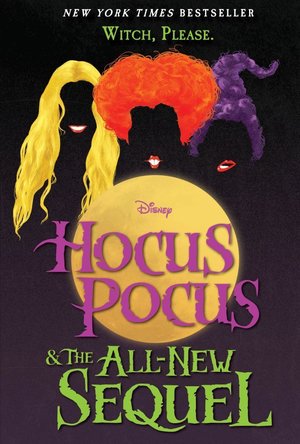
Hocus Pocus and the All-New Sequel
Book
Hocus Pocus is beloved by Halloween enthusiasts all over the world. Diving once more into the...
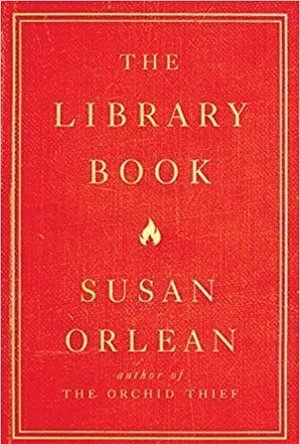
The Library Book
Book
A dazzling love letter to a beloved institution—and an investigation into one of its greatest...
